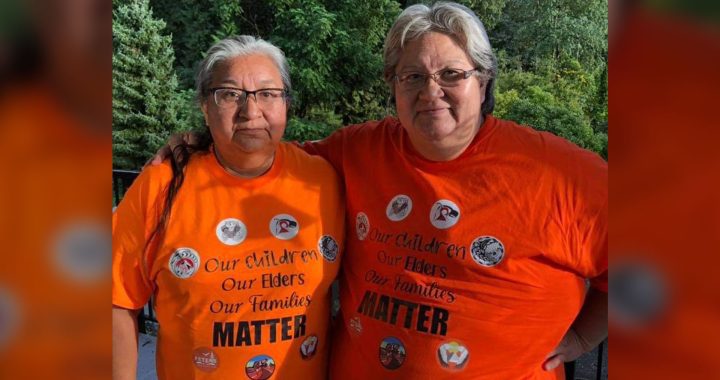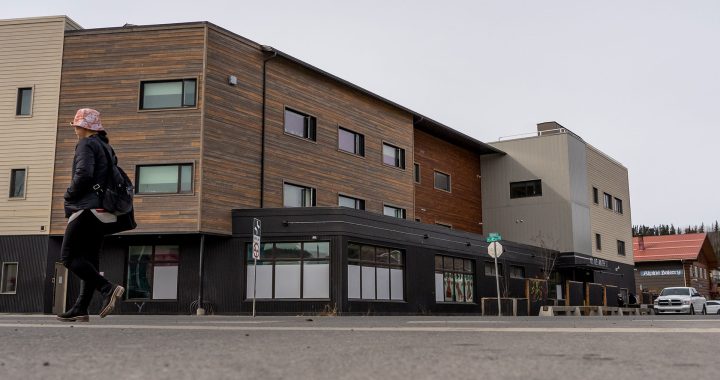Jorge Barrera
APTN National News
Indigenous Liberal candidates endorse a threat against Aboriginal rights by supporting Liberal leader Justin Trudeau’s decision to back the Harper government’s anti-terror bill through the House of Commons, says Cree NDP MP Romeo Saganash.
The Harper government’s proposed Bill C-51 passed second reading in the House of Commons Monday with votes from Conservative and Liberal MPs. The proposed bill will now go to a parliamentary committee for study.
The government is reportedly trying to impose a limit of three days for committee hearings on the bill. The bill proposes to endow police-like powers onto Canada’s spy agency and give police more leeway in determining when to counter perceived threats. Another measure proposed by the bill includes a crack-down on speech on-line interpreted as promoting terrorism.
The NDP is opposing the bill.
The Liberal party hast stated it will vote in support of the bill’s passage through the House of Commons, but promises to change it if they manage to form the next federal government.
Saganash said the bill poses a threat to assertions of Aboriginal rights enshrined in section 35 of the Constitution.
“How many times has Canada considered, whenever we protested to defend our rights or have them recognized, how many times have they considered that legitimate or lawful?” said Saganash. “They have always used police authorities and force against us, against that kind of dissent.”
Saganash said he has a “difficult time understanding” how Indigenous Liberal candidates can back Trudeau’s decision to have his MPs vote for the bill and still support Aboriginal rights.
“I would never allow any government or any party say, ‘let’s forget about Aboriginal rights in this case, even if there are serious threats, and we’ll deal with it when we come into power,’” said Saganash. “That is unacceptable for me, for someone who has fought for Aboriginal rights and treaty rights…never would I accept someone saying we can set aside section 35 rights for the moment.”
Saganash recently took to Twitter on the issue to challenge two nominated Indigenous Liberal candidates, Jody Wilson-Raybould, who is running for a seat in Vancouver, and Robert-Falcon Ouellette, who is running in Winnipeg. Saganash also challenged former Native Women’s Association president Michele Audette, who is seeking the Liberal nomination in Quebec’s Manicougan riding.
“C-51 Real threat to S.35 Rights, why are the #LPC Abo Candidates so silent?” tweeted Saganash on Saturday.
Ouellette and Audette were the only ones to respond directly to Saganash.
Ouellette responded Tuesday with a Facebook post essentially repeating Liberal talking points on the bill, including how it needed a sunset clause, more oversight and that a Liberal government would make things right.
In an interview with APTN National News, Ouellette paused for a moment before answering a question on whether he could stomach voting for the bill if he was an MP.
“Could I vote for it right now…if I was sitting in parliament? I don’t know, I haven’t got to that point yet,” he said.
After some back and forth tweeting on Sunday with Saganash, Audette said she needed to study the issue more.
“I don’t have a team of lawyers to help me,” tweeted Audette.
“Same for me. But how can one be in favour of C-51 if one has defended fundamental rights all their life?” tweeted Saganash, in response.
“Well, pass the message on to your leader,” responded Audette.
“#MyPointExactly My leader is against, yours for! #MechanteDifference,” tweeted Saganash.
Saganash misspelled Wilson-Raybould’s twitter handle, but she also tweeted about the bill on Sunday.
“Slippery slope if legitimate political protest/dissent is interpreted as terrorism,” tweeted Wilson-Raybould. “Who is watching the watchers? Oversight required #BillC51.”
A B.C. chiefs organization came out against the bill Friday.
“The Union of B.C. Indian Chiefs believes the sweeping scope of Bill C-51 directly violates the ability of all Indigenous peoples to exercise, assert and defend their constitutionally protected and judicially-recognized Indigenous title and rights to their respective territories,” said Grand Chief Stewart Phillip, the president of the organization, in a statement.
Despite some controversy, the UBCIC has supported Wilson-Raybould’s decision to remain regional Assembly of First Nations chief while also a running as a Liberal.
Wilson-Raybould did not return APTN’s request for comment.
The RCMP and the Canadian Security Intelligence Agency (CSIS) routinely monitor Indigenous activists and protests.
As APTN National News has previously reported, the RCMP keeps a file on prominent activist Clayton Thomas-Muller. APTN has also reported on CSIS agents making contact with Indigenous activists to warn them off protests or to squeeze them for information about trips to foreign countries.
A recent analysis by lawyers with Toronto firm Olthuis Kleer Townshend found that the proposed bill could give authorities “a blank cheque” to “stifle Indigenous dissent.”
The analysis found Indigenous dissent could find itself in the cross-hairs as a result of the existing broad definition of terrorism coupled with the bill’s proposal to give police the power to execute arrests simply on the belief that a terror act “may be carried out” instead of “will be carried out.”
The analysis used a road blockade, which is a common tactic in Indigenous protests, as an example.
“Under the new ‘may’ standard, the (police) officer might say to himself: ‘Might these people be intending to harm public safety? Maybe they intend to even block fire trucks from going through this route. If there is a fire in this area, the public will surely be in danger. I better start arresting people,” said the analysis.
“We are not saying this is a reasonable interpretation. What we are saying is because of the vagueness, it is susceptible to unreasonable interpretation,” said Michael McClurg, one of the co-authors of the analysis, in an interview.
“For First Nations, the democratic channels of advocacy are generally not available because voters don’t pay attention, so the judiciary and direct action become more important for the assertion of section 35 rights,” said Senwung Luk, the other co-author of the analysis.
@JorgeBarrera










My own words on what should be done concerning Bill C-51 as found on my facebook page without the fear-mongering. Robert-Falcon Ouellette
https://www.facebook.com/RFalconOuellette
I have received many questions about whether or not I support Bill C-51, the Harper governments’ proposed anti-terrorism bill.
It is clear that the Harper government has no intention whatsoever of amending the bill and the Conservatives will use their majority to ram it through with little debate.
If elected MP, I will vote to amend the bill. Among the amendments I hope to ensure:…
– Ensuring that civil liberties and the right to lawful protest are strongly protected
– Strong and ongoing public oversight to prevent overreach as long as the bill is in effect
– A sunset clause, so that the bill’s provisions will expire if not renewed by parliament.
It is clear that the bill has deficiencies, but the debate around it has offered little light but plenty of heat.
For a bill that is supposed to carry such serious consequences for national security, Canadians’ safety and for civil liberties, the level of fear-mongering on both sides has been irresponsible.
I strongly believe in protecting the right to protest, to freedom of speech and association, and to political activism. Given the Conservative government’s record of suppressing free speech and finding ways to choke off funding to groups who voice opposition to their policies – from scientists to charities – it is easy to understand why many groups fear that they will be targeted by this government.
To any group that is pursuing change within our society through peaceful means: I urge you not to be afraid. Do not be cowed into submission by the fear-mongering on either side. Do not be afraid to speak up for your cause, whether it is the environment, or housing, or Indigenous rights, workers fighting for a better wage, or veterans fighting for fair treatment.
You are not alone: I will lend my voice to yours. I will stand with you and walk with you and join you at your peaceful protest.
The special powers of C-51 are usually associated with wartime, and citizens should be able to expect that special powers will be lifted once the threat has passed. Canadians should not be asked to permanently give up their rights, and our children should not be asked to inherit a war.
The idea that C-51 could become permanent clearly shows that the Harper Government has failed to develop any credible long-term counter-terrorism strategy. The scare tactics being used by Prime Minister about imminent risks underlines a lack of a short-term strategy.
Our goal as Canadians should be reducing the risk of terror in the long run, not just coping with it through an endless series of emergency measures.
We should be working towards a world where our children can live without the threat of terrorism or C-51 over their heads. Developing and funding and implementing such a strategy should be the among the first priorities of the next Government of Canada. With your support, I will make it happen.